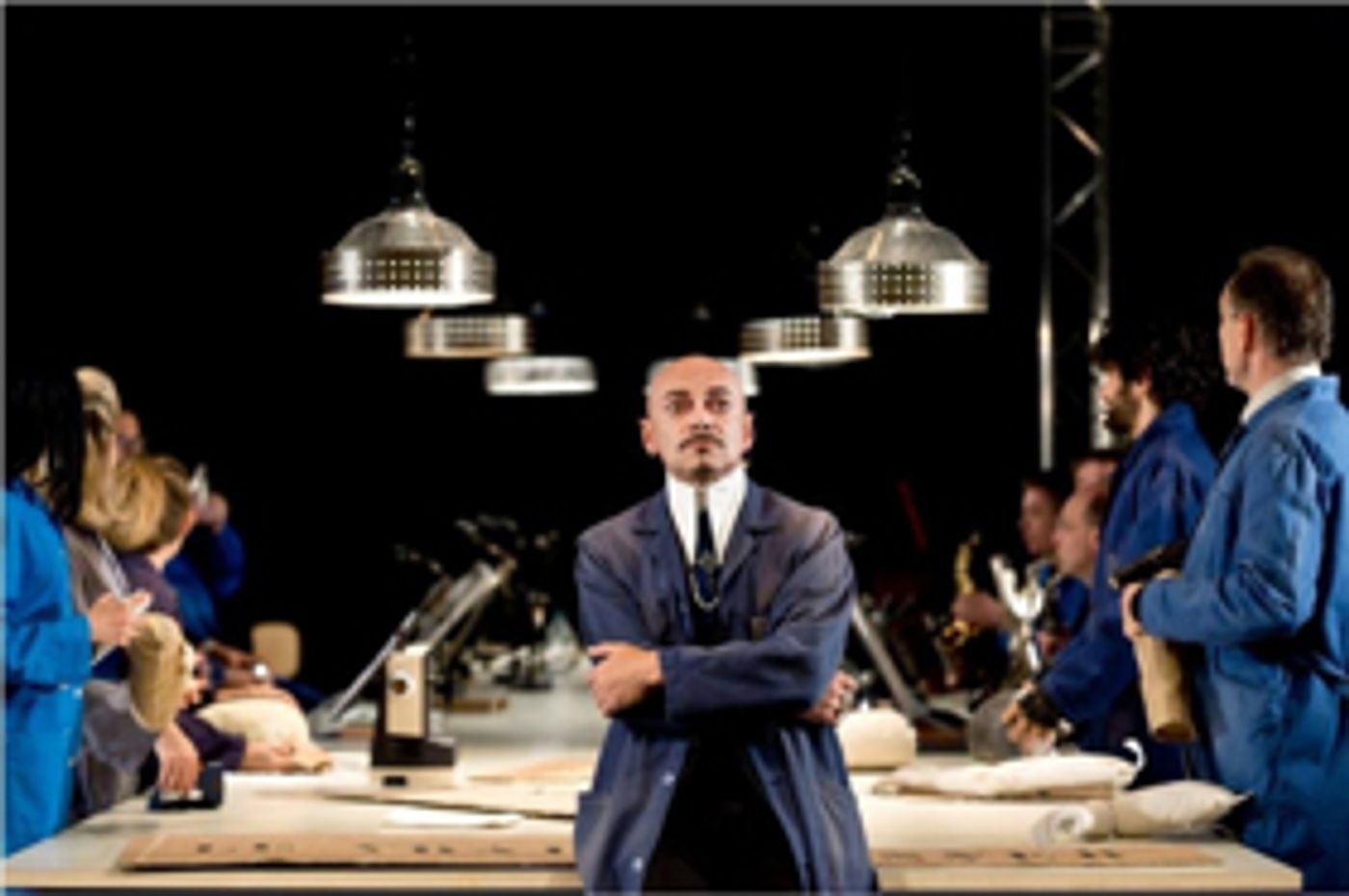Review: OPERA GRAND AVIGNON Presents L'OPERA DE QUAT'SOUS

Brecht and Weill's The Threepenny Opera (l'Opéra de Quat'Sous in French) is one of those works that became the hallmark of its era. Its sound, its look, and its cynicism are pure Weimar. However, during the 1928 Berlin premiere, early songs such as "The Ballad of Mac The Knife" and "Pirate Jenny" landed with a shrug, and it wasn't until the "Canon Song," halfway through the first act, that the audience became engaged. All of this to say that The Threepenny Opera is a complicated play whose virtues might not be immediately evident to the uninitiated. The production at Avignon's Opéra Confluence, as directed by Jean Lacornerie, comes in at a swift two hours without intermission. While crammed onto an over-packed stage and breathlessly paced, Lacornerie still manages to keep the action moving with style.
Based on Elisabeth Hauptmann's translation of John Gay's eighteenth century The Beggar's Opera, The Threepenny Opera follows the escapades of Mac The Knife as he elopes with Polly, the daughter of businessman Peachum. What follows their marriage is a madcap burlesque featuring brothels, corrupt policemen, and an eleventh hour reprieve of Mac from the gallows by order of the King. Threepenny is distinguishable from Brecht's other works due at least in part to his combative collaboration with composer Weill. While future Brecht works are noted for their grounded clarity, bring the action of Threepenny too close to Earth and you risk losing its spark. Understanding this, Lacornerie has smartly dotted the play with devices such as George Grosz inspired puppets, set changes with cardboard boxes, and charming interaction with the onstage orchestra.
The actors perform their parts responsibly, with none stealing the spotlight. Pauline Gardel and Amélie Munier play wonderfully off each other in "The Jealousy Duet". Florence Pelly and Jacques Verzier seem to be having the most fun on stage as Mr. and Mrs. Peachum. Perhaps the standout moment of the piece belongs to Nolwenn Korbell, who is allowed a rare moment of intimacy and vulnerability during her "Solomon Song." Vincent Heden brings both the violence and sexuality of Mackie Messer on stage, making him at once desirable and repulsive. Gilles Bugeaud plays the role of Tiger Brown in a grounded manner, surprising for an absurd role. Finally, the onstage orchestra, led by musical director Jean-Robert Lay, plays along with the scenic action with deadpan humor.
While spry, the clunky scenic elements keep the action from being fleet-footed. Though offering opportunities for invention, Lisa Navarro's scenography packs the space with confounding forced perspective, industrial lighting, and warehouse shelves stocked with boxes. Navigating this limited space demands a distracting precision from the actors, who might be wandering on wielding one of Emilie Valantin's larger than life-sized puppets. Choreographer Raphaël Cottin begins the performance smoothly, with a Fosse-esque solo for "The Ballad of Mac the Knife," but the rest of the performance is too busy to host such confident choreography. Lights by David Debrinay are at their best when they are at their most crudely theatric. Spotlights, which would waver over actors and change focus, brought a texture and charm to the work that the industrial lighting soaked away. Threepenny is the child of a messy divorce. Is it a Brecht play, or a Weill cabaret? Lacornerie offers evidence to both without offering a conclusive aesthetic answer to either, leaving the production in no man's land. However, the brevity of the performance, and consistency of invention leaves it as an enjoyable introduction.
Photo Credit: Frédéric Iovino
Reader Reviews
Videos

